- The University
- Studying
-
Research
- Profile
- Infrastructure
- Cooperations
- Services
-
Career
- Med Uni Graz as an Employer
- Educational Opportunities
- Work Environment
- Job openings
-
Diagnostics
- Patients
- Referring physicians
-
Health Topics
- Health Infrastructure
Research units: Cancer research

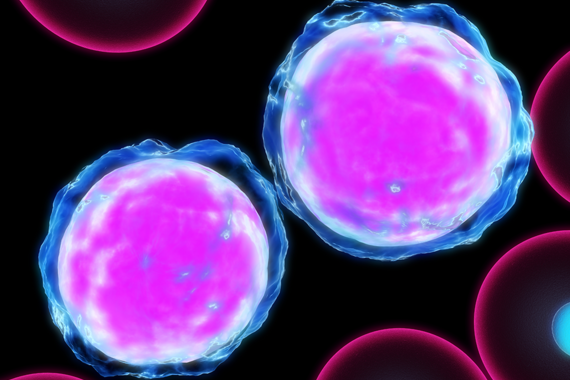
Myeloid Cells and Leukemia
TP53 is the most frequently mutated tumor suppressor gene observed in human malignancies. In patients with acute myeloid leukemia, it is associated with therapeutic resistance and inferior survival. Our research aims at understanding mechanisms of resistance and how to override them as well as possibilities of primary prevention. Thereby, we use innovative technologies and rely on the interplay between basic research and clincial science as well as international cooperations.
Head of the research unit: Heinz Sill
Further information

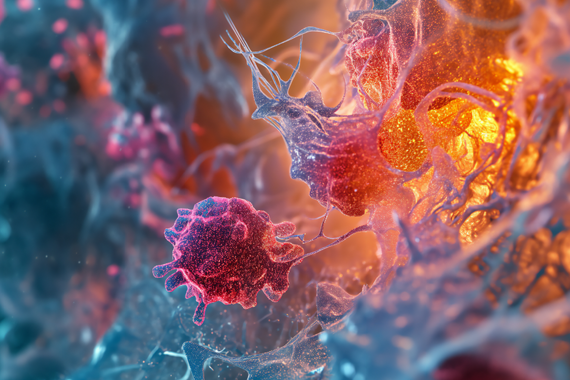
Translational and experimental leukemia research
Myeloid leukemias are devastating hematologic cancers with a dismal prognosis in affected patients. Our experimental-translational research group aims to delineate the molecular basis of myeloid leukemia development and use this knowledge to design novel treatment approaches. Our involvement in clinical trials further fuels this concept. In the biobank, high-quality samples from leukemia patients are collected and integrated into our research activities.
Head of the research unit: Armin Zebisch
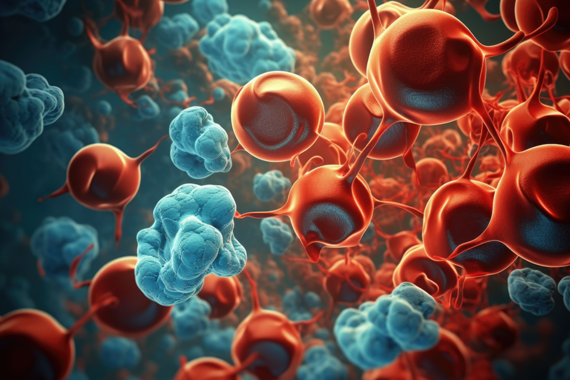
Lymphoid Malignancies
The aim of the research unit "lymphoid neoplasms" is to investigate the molecular causes of the development and spread of various malignant lymphomas and to identify new therapeutic structures for targeted therapy. Furthermore, innovative clinical studies are offered at our centre, whereby new highly effective substances are applied.
Head of the research unit: Peter Neumeister
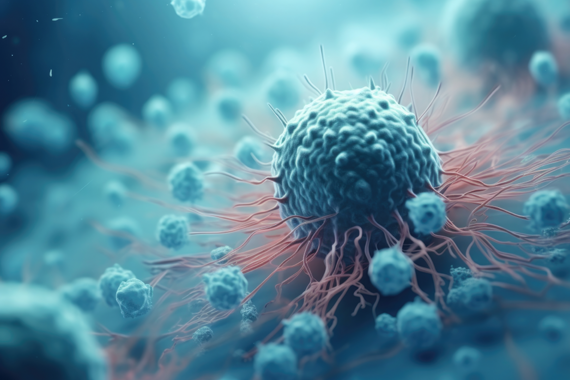
Tumor microenvironment and immunology in hematologic neoplasms
Using preclinical models as well as innovative co-culture experiments and human tissue and blood samples, we aim to elucidate how malignant hematologic cells shape their tumor microenvironment to receive important growth signals and to regulate or inhibit immune cell responses. In addition, we will identify genetic alterations and their impact on the pathogenesis and tumor microenvironment of hematologic neoplasms.
Head of the research unit: Alexander Deutsch
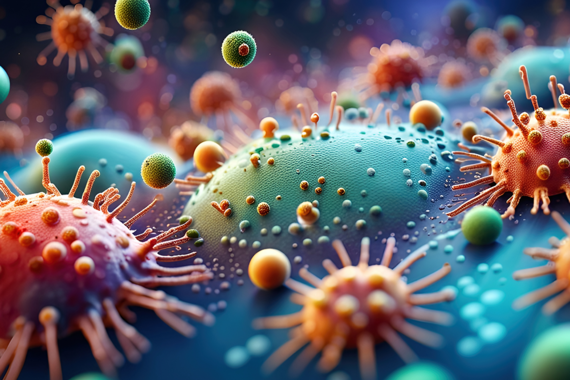
Cancer and Inborn Errors of the Blood and Immunity in Children
The "Styrian Children's Cancer Research - Research Unit for Cancer and Inborn Errors of the Blood and Immunity in Children" is made possible by a foundation of the Styrian Children's Cancer Aid for the promotion of research at the Clinical Department of Pediatric Hemato-Oncology of Med Uni Graz. Important research topics are in particular precision and personalized oncology, the role of the immune system and metabolism in tumor development and growth, and congenital risk factors for tumor development.
Head of the research unit: Markus Seidel
Further information

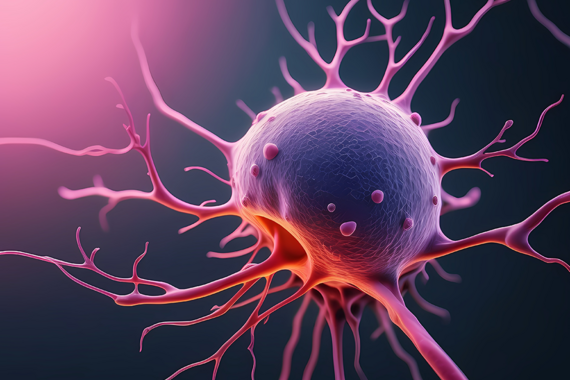
Translational breast cancer research
Focus: clinical and molecular breast cancer heterogeneity, prognostic and predictive biomarker of breast cancer, circulating tumor cells and circulating DNA detection and translation in clinical studies, better understanding of risk factors for metastasis. Impact of novel therapies like CDK 4/6 inhibitors or PIK3CA inhibitors in the combination with antihormonal or targeted therapies and development of resistance mechanisms.
Head of the research unit: Marija Balic

Liquid biopsies for personalized medicine in cancer
Tumors release cell-free circulating DNA (cfDNA) into the bloodstream. By means of a simple blood draw using a so called liquid biopsy, the selection of treatment can be continuously adopted and the monitoring of resistance and tumor composition as well as early prediction of response to treatment can or improved the in cancer patients. In this research unit, additional clinical applications are explored in order to ultimately provide access to cfDNA-based analyses for patients who could benefit from them.
Head of the research unit: Ellen Heitzer

Epigenetic and genetic cancer biomarkers
We aim at refining and individualizing the diagnosis, prognosis, and treatment of cancer patients using liquid biopsy as well as genetic and epigenetic markers. We address the challenge of analyzing complex data sets by applying efficient, innovatiive bioinformatic and statistical methods. In this context, intensive interdisciplinary collaboration is essential to optimize the clinical relevance and translation of our research.
Head of the research unit: Nadia Dandachi
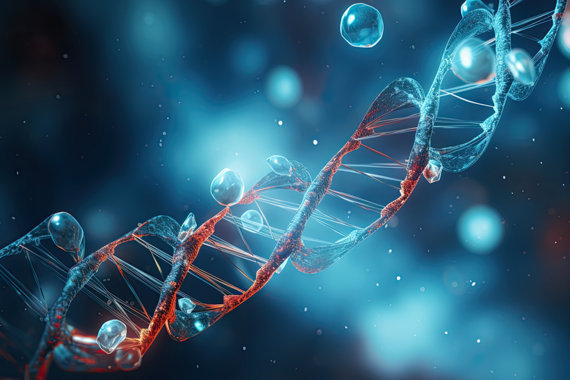
Non-Coding RNAs and Genome Editing in Cancer
The Research Unit for non-coding RNA is involved in functional characterization of molecular mechanisms and evaluation of clinical relevance of non-coding RNAs in human cancers.
Head of the research unit: Martin Pichler
Further information

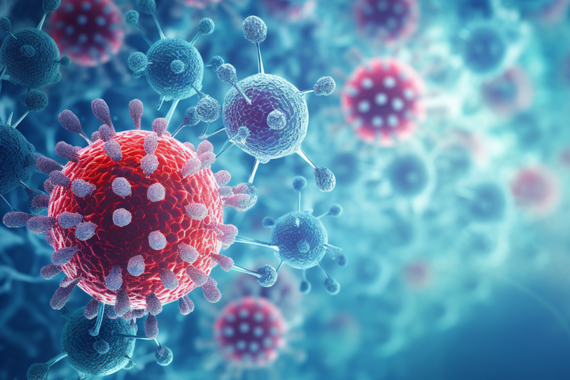
Gynecological Morphology and Cytology
Cervical carcinoma often occurs in young women, which is a special feature of this cancer. With international and national cooperation, this research unit is working on various aspects of tumor development with a special focus on the concept of transforming infection with human papillomaviruses (HPV) in a special cell population (reserve cells of columnar epithelium) of the cervix. The aim is to improve the prevention and treatment of these tumors through a new concept.
Head of the research unit: Olaf Reich
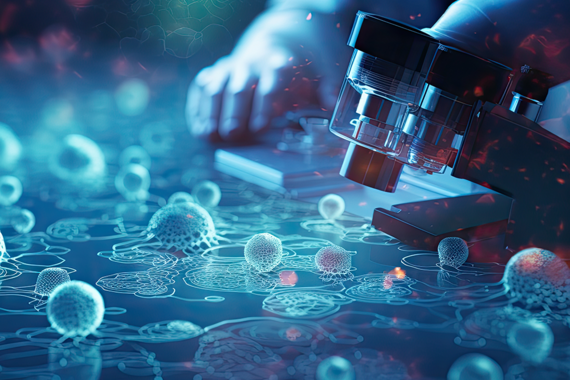
Molecular and Applied Radio-Oncology
The research is focused on investigating how molecular mechanisms and various factors impact an individual's sensitivity and resistance to radiation. Furthermore, patients are identified who are likely to experience disease progression or an increased risk of toxicity after radiotherapy. Additionally, the consequences of radiotherapy are analyzed in terms of toxicities, quality of life, and aging processes. Clinical studies are also conducted to implement innovative radiation techniques.
Head of the research unit: Tanja Langsenlehner


